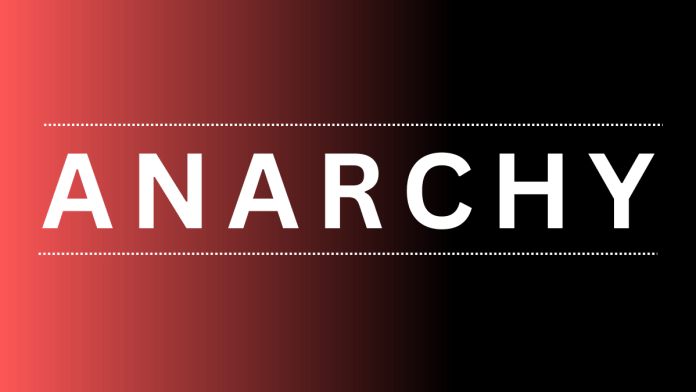Thank you dear subscribers, we are overwhelmed with your response.
Your Turn is a unique section from ThePrint featuring points of view from its subscribers. If you are a subscriber, have a point of view, please send it to us. If not, do subscribe here: https://theprint.in/subscribe/
I’ve often been asked what led me to identify as an anarchist, as though it were a conscious decision made after weighing the pros and cons of various political ideologies. But the truth is, I was an anarchist long before I had the language to articulate it, long before I even knew what anarchism was.
It was not a philosophy I adopted after reading books or engaging in political debates, but an instinctive response to the world around me, a reaction to the hierarchical structures that I encountered at every turn—school, family, work, society itself.
My earliest memories of this inclination toward anarchism was during my school days. Like many children, I was thrust into an educational system that assumed authority without question. The teacher, standing at the front of the room, was the unquestioned figure of power. We, the students, were to listen, absorb, and obey. I remember thinking how absurd it was that we were expected to sit in rows, listen passively, and regurgitate what was said without so much as a question.
It wasn’t rebellion for rebellion’s sake—after all, the system had made clear the consequences of stepping out of line, of defying the prescribed order. But there was something inherently wrong with this setup. Why should the teacher’s word be law? Why should we all be forced to march in lockstep, our individuality sacrificed to the machinery of rote learning?
Over time, my discomfort with authority only deepened. I began noticing how societal structures imposed hierarchies everywhere. At home, parental authority was justified as “for our own good,” but rarely did anyone stop to ask whether children had their own sense of autonomy. In the marketplace, employers held power over workers in ways that seemed almost medieval, despite the veneer of modernity. Laws, I observed, were primarily designed to protect property and privilege rather than people. And all of this was predicated on the idea that these systems were not just necessary but natural.
The workplace, as I transitioned into adulthood, provided yet another layer of evidence for my anarchist instincts. Here, authority was not abstract or philosophical; it was concrete, material, and directly tied to one’s livelihood.
I recall an incident when I was working for a large corporate firm, and a directive came down from upper management that fundamentally altered the way we were to approach our work. The directive was ridiculous—created by people far removed from the day-to-day operations, people who had no understanding of the complexities we faced.
Yet, because they held the power, we were expected to follow their orders without question. I watched as my colleagues grumbled and complained, but ultimately complied.
At every phase of my life, I encountered these same dynamics—whether in school, at home, in social relationships, or at work. Authority, I found, was almost always arbitrary, unearned, and ultimately destructive to the human spirit. The systems that people accepted as natural—the state, the market, the family—were, in fact, deeply unnatural. They were constructs designed to maintain power in the hands of the few, at the expense of the many. And yet, they persisted because people had been conditioned to believe that there was no alternative, that authority was inevitable and necessary.
But I could never accept that.
My anarchism, as I came to understand it, was not a rejection of order or of structure, but a rejection of coercion, hierarchy, and domination. It was a belief that human beings, left to their own devices, could organize themselves in ways that were far more just, equitable, and compassionate than any system of imposed authority could ever achieve. I found resonance in the works of anarchist thinkers like Bakunin, who argued that freedom could not be granted from above, but must be seized from below. I found validation in the writings of Emma Goldman, who insisted that true liberation could only come when individuals freed themselves from the internalized chains of authority.
In many ways, anarchism is not something that I chose. It is something that chose me. It is the natural consequence of living in a world that demands conformity while offering little in return for one’s obedience.
My path to anarchism, therefore, was not the result of any one event but rather the accumulation of countless moments where I could not reconcile my sense of justice with the demands of authority. And as I continue to live and learn, I find that the more I understand the world, the more convinced I become that anarchism—far from being a utopian dream—is the most rational, humane, and just response to the world’s problems.
So, when I am asked what led me to become an anarchist, my answer is simple: I always was one. I just didn’t know it yet.
These pieces are being published as they have been received – they have not been edited/fact-checked by ThePrint


